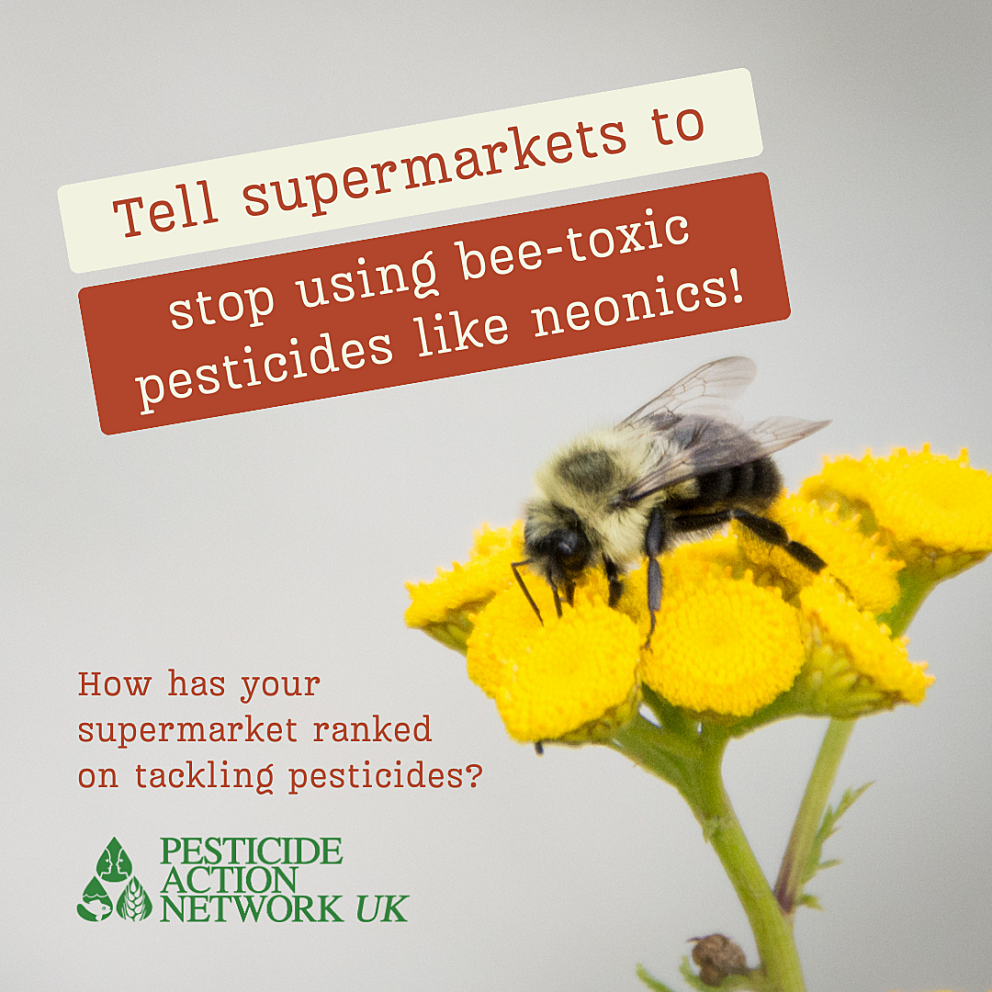UK supermarkets urged to end use of pesticides in supply chain

The Pesticide Action Network (PAN UK) has ranked UK supermarkets on their efforts to protect consumers, farmworkers and wildlife from pesticides. And the news isn't good.
Highly Hazardous Pesticides (HHPs) continue to be used within the global supply chains of all of the UK’s largest ten supermarkets, including carcinogens and hormone disruptors, bee-toxins and water contaminants.
While acknowledging that some supermarkets are doing far better than others, PAN UK’s 2024 ranking shows most major supermarkets need to make significant improvements in protecting bees and other pollinators from pesticides.
Read the full report here and write a letter to supermarket CEOs to tell them to ban bee-killing pesticides.
Pesticides threaten our ecosystem
PAN UK ranked supermarkets on six areas aimed at tackling pesticide harms. These include the support offered to suppliers to adopt non-chemical alternatives and efforts to phase out chemicals that pose a particular risk to farmworkers’ health.
While most supermarkets have made progress since PAN UK’s previous supermarket ranking in 2021, this year’s ranking order remains largely unchanged with M&S and Waitrose leading the way, and Aldi and Iceland trailing at the bottom. See the full ranking here.
Josie Cohen from PAN UK said, “Given that threequarters of crops rely on pollination, the catastrophic decline in global insect populations seen in recent years not only threatens ecosystems but also our own food security.
"Neonicotinoids and many other bee-toxic pesticides are banned in the UK and EU, where farmers prove every day that it’s possible to grow food without them. If supermarkets want to protect food supplies and reduce their impact on nature, they should commit to ending the use of all highly bee-toxic pesticides throughout their global supply chains by 2030 at the very latest. Nature does not have time to wait.”
What supermarkets can do
On top of phasing out bee-toxic pesticides from their global supply chains, PAN UK suggests two quick wins that would help protect wildlife closer to home. All supermarkets continue to use pesticides, mostly weedkillers, around their stores and car parks. While the majority of supermarkets are now running trials of non-chemical alternatives, not one has yet taken the plunge and gone pesticide-free.
Supermarkets are also being urged to stop selling harmful pesticide products (such as garden weedkillers and pet tick and flea treatments). Co-op, Waitrose and Lidl responded by removing these products from their shelves, but Asda, Aldi, Morrisons, Sainsbury’s and Tesco urgently need to follow suit for the sake of UK biodiversity.